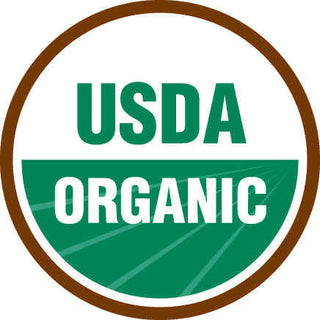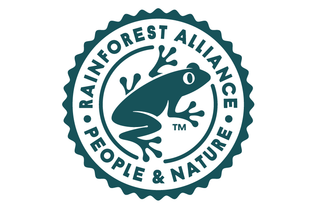organically Nilgiris
We believe in producing tea organically and sustainably, and so do our partners. Our teas are grown using only neem based natural pesticides and organic manure. Water is harvested from natural springs and rainfalls. In order to not disturb the environment, the original forests surrounding the estates are preserved in their pristine condition. This forest cover form a natural barrier against the harsh winds that may damage the tea.
why is organic cultivation so important?
Tea is arguably one of the the lowest maintenance crops there is. Neither does it need much water nor perfect conditions to grow, which is why tea bushes are found even on the steepest slopes in high elevation areas. Once planted, the bushes can produce leaf for decades and become even stronger and better with age. Due to the climatic conditions, tea bushes rarely affected by pests (at least, we’ve never seen over caffeinated bugs!) and handle the harsh sun and the winter stoically. In a nutshell, regular plucking and pruning is all the tea plants need to produce healthy leaves in abundance.
Yet, we’ve seen tea plantations being sprayed with fertilisers and pesticides more offer than we’d like to. This may be just an inevitable part of the commercial agriculture, but we refuse to buy and consume tea that has been treated with harmful chemicals. Just think about it: the first time the tea leaves are ‘washed’ are in your tea infuser or mug. No, thank you!
We believe in producing tea organically and sustainably, and so do our partners. Our teas are grown using only neem based natural pesticides and organic manure. Water is harvested from natural springs and rainfalls. In order to not disturb the environment, the original forests surrounding the estates are preserved in their pristine condition. This forest cover form a natural barrier against the harsh winds that may damage the tea.


does tea need to be certified to be truly organic?
Organic teas, herbs and spices, grown without the use of chemical pesticides and fertilizers are healthier for the environment, farmers and tea drinkers alike. However, does it mean tea has to be certified organic to be healthy and safe to drink?
Imagine you could buy all your vegetables, eggs, grains, tea, coffee or anything else you use directly from your neighbourhood farm. You could have a friendly chat with the farmer, see the crops grow or the chickens pecking around. You’d get an even stronger assurance from knowing that the produce you buy is the same your farmer feeds to his or her family. This is the kind of relationship we have with the tea farmers in the Nilgiris. We have toured numerous tea plantations and factories to source the best, freshest and purest teas. We’ve taken time to visit each estate personally, get to know the owners, managers, tea masters and other staff who are as passionate about tea as we are. They don’t chase quick profits and stand by the quality of the leave they purchase and the final product it becomes.
certified organic or organically grown?
Unlike other tea regions like Assam or Darjeeling, the majority of Nilgiris tea is grown and produced by smallholders who own just a few acres of land and sell their leaf to tea factories in the area. On one hand, this is a huge plus: no-one looks after their property like the owner does. The price tea farmers get paid for the green leaf is directly proportional to the quality, which is a great incentive for the tea growers and pluckers to maintain the highest standards. On the other hand, Organic certification is plain expensive and not something an average farmer can justify.
Our largest partner, Korakundah estate (a part of the United Nilgiri Tea Estates group) is the only USDA Organic certified tea estate in the Nilgiris at the moment. A few other estates with work with are certified by local organic certification bodies, which does not directly translate into USDA Organic standards. The rest are mainly small or micro-estates that follow strict organic practices but have not gone through formal certification. Such estates often belong to growers co-operatives that peer-review each other, to make sure not a leaf falls through the cracks.
our organic partners
Korakundah Estate
The teas in our organic collection are grown at over 8,000 ft. among the rolling hills of the Korakundah Estate, the highest situated organic tea estate in the world! This factor greatly enhances the flavor and the quality of the tea. This is the altitude where birds fly free, rain water runs down the mountain, the sky is clear and full of stars at night, and where no noise can reach. We must say, our tea bushes enjoy a truly natural and zen life!
Korakundah Estate was the first certified organic Nilgiri tea estate and is still the only USDA Organic certified estate in the area. It also produces Kosher, Fair Trade and Rainforest Alliance certified tea.
Driving up to the estate feels as if you are going to tip over the edge of the world! This pristine location on top of the mountain, amidst of the thick forest (shola), with no busy roads, villages or farms within reach grant Korakundah estate a unique advantage of being naturally organic. But this lottery winning location is just one piece of the large organic scheme. There is a lot more that goes into producing some of the purest teas in the world.
The tea estate is surrounded by the thick forest and is miles away from other estates or farms. Parts of the tea gardens adjoin forestland and in some cases the adjacent forests are the virgin jungle native to the Nilgiri hills. With this fragile and precious eco-system co-existing with the tea gardens, great care is taken to ensure harmful pesticides do not enter the forest soil and water. The tea plants are never treated with any chemicals and receive the first supply of rain and stream water. Korakundah estate also boasts of a dairy farm suppling manure to the plantations.
Tea leaves are plucked by hand and transported to the factory in special sacks. Plucking the most tender leaves and buds is a tedious job that only the delicate hands of the local women are trained to do. Balancing the oversized tea sacks on one’s head is a skill of its own!




